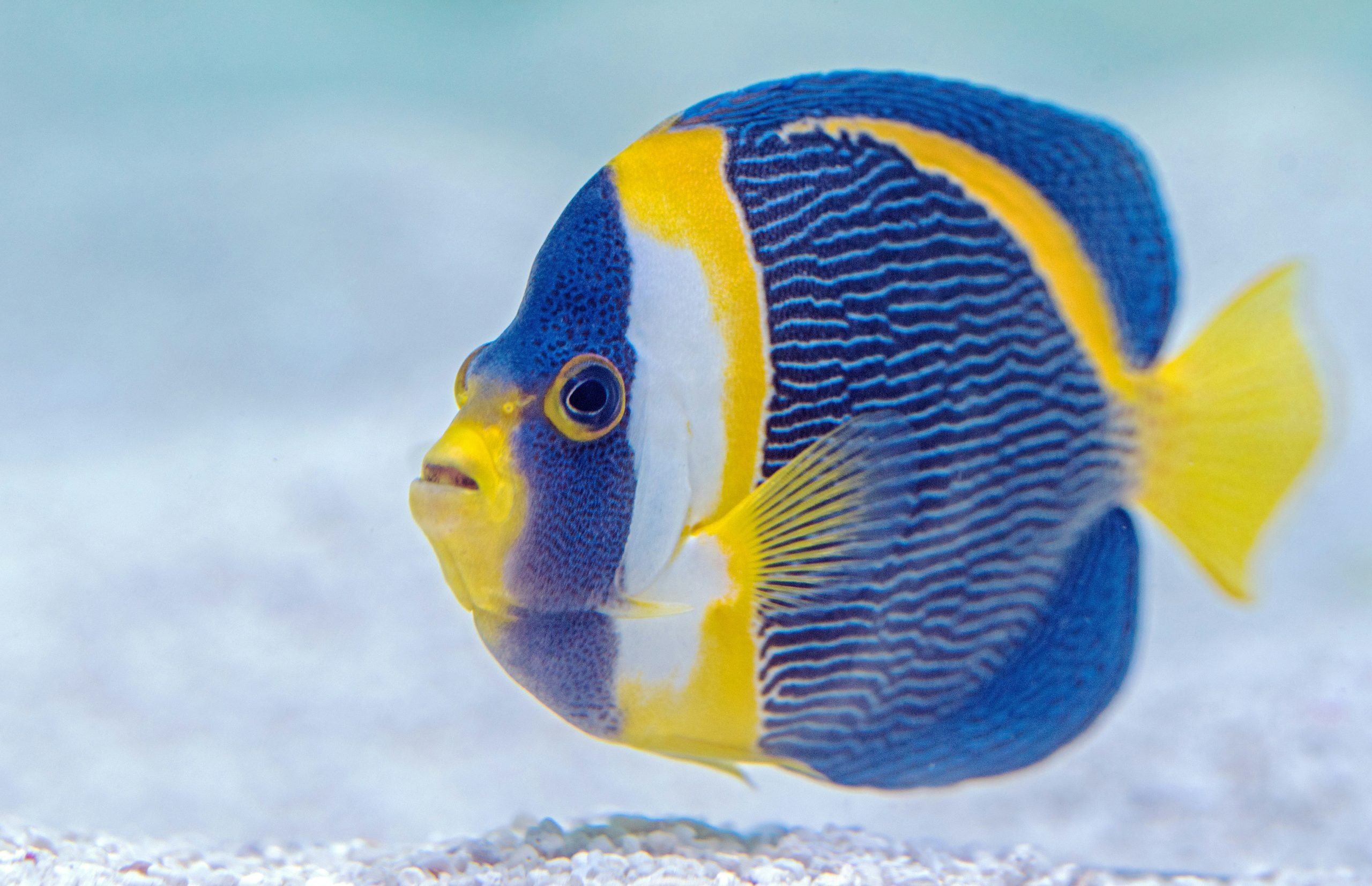Table of Contents
- 1 Which Fruits Can Athletes Consume?
- 2 What Nutrients Do Fruits Give Athletes?
- 3 What Are the Most Beneficial Fruits for Athletes?
- 4 How Much Fruit Do Athletes Consume?
- 5 Which Fruits Are the Healthiest?
- 6 What is the Unhealthiest Fruit?
- 7 What is the Healthiest Fruit to Eat Before Working Out?
- 8 What Are the Best Fruits to Eat After Working Out?
- 9 Are Bananas Safe to Eat for High School Athletes?
- 10 What Motivates Athletes to Consume Fruits and Vegetables?
- 11 Is it Safe to Eat Dry Fruit After Working Out?
![]()
Fruit is nutritious and contains many essential nutrients to fuel physical activity and offer significant performance benefits. Berries, bananas, and even dried fruits are among the best fruits for athletes, and there are several more mentioned below!
Continue reading for a list of the best fruits for athletes, as well as instructions for fruit consumption before and after physical exercise.
Which Fruits Can Athletes Consume?
If you keep up with food trends, you’ve probably heard of superfoods, which are foods that are high in nutrients and can have great health benefits when included in your diet.
Fruit is high in nutrients and contains a variety of vitamins, minerals, enzymes, phytochemicals, and other compounds that help your body work.
Athletes, especially high school athletes, must consume healthy fruits in order to obtain essential nutrients for optimal success. Proper nutrition is just as essential as daily exercise. Your diet should be just as essential as your fitness efforts.
This post will go into the best fruits for athletes, fruit consumption recommendations, fruits to avoid, and the best fruits to consume pre- and post-workout. Continue reading to learn more!
What Nutrients Do Fruits Give Athletes?
You need the right nutrients as an athlete for your body to work properly and fuel itself during high-intensity exercise. Many of these essential nutrients can be found in fruits.
Fruit is important for sports nutrition because it contains the following nutrients:
Fruit is a perfect source of fibre. Fiber controls gut health and digestion rate, which means you’ll have a balanced gastrointestinal system because fibre can help you avoid constipation.
It will make you feel satisfied after a meal and more your cravings for unhealthy foods, and it will provide you with a consistent energy supply with controlled blood sugar. It will assist you in maintaining a healthy weight and decreasing the overall risk of disease.
Since fibre can delay digestion, it should not be ingested immediately before high-intensity training or game days. See my article on What Not to Eat Before a Football Game for more details.
B Vitamins– Thiamin, Niacin, and vitamin B6 are essential B vitamins that support your body’s metabolism of carbs, protein, and fat.
They also help with nerve function, muscle contraction, and the formation of new tissue. Fruits like apples, bananas, citrus fruits, and berries contain a lot of B vitamins.
Folate is another B vitamin that aids in DNA synthesis for healthy cell division and development, including the production of blood cells.
Magnesium, like the B vitamins, aids in energy production, nerve activity, and muscle contraction, and it also aids in bone mineralization, enzyme actions, and protein synthesis. Magnesium is becoming increasingly popular as a supplement, but it is also easily obtained through a well-planned diet that includes fruits such as figs, bananas, and raspberries.
Athletes need an extra dose of iron. Iron performs important functions such as blood cell development, energy metabolism, and antioxidant function.
Iron promotes proper muscle function. It enables the body to convert carbohydrates into energy for use during exercise. Don’t forget that one of iron’s primary functions is to transport oxygen in the blood to all body tissues. Iron is necessary for providing the muscles with the oxygen and fuel they need to perform optimally during exercise.
Vitamin C aids in wound healing, immune health, connective tissue formation, and acts as an antioxidant to prevent cell damage. Another great advantage of vitamin C is that it aids in the absorption of iron from plant-based foods.
Citrus fruits, berries, and kiwis are high in vitamin C. Plus, acerola, a Brazilian fruit the size of a cherry, contains more vitamin C than an entire orange.
Potassium is beneficial to athletes because it aids in muscle contraction. It is a sodium-containing electrolyte that regulates the fluid levels. Low potassium levels can reduce an athlete’s energy and endurance. It is also beneficial to the heart and can help prevent muscle cramps.
What Are the Most Beneficial Fruits for Athletes?
While all fruits are nutritious and beneficial to your wellbeing, some fruits are especially beneficial to athletes. When you eat fruit, you give your body micronutrients (vitamins and minerals), antioxidants, and energy (calories).
Athletes who do not consume enough micronutrients can experience early fatigue, compromised immune function, muscle and cell damage, and overall poor results. Vitamins and minerals help athletes prepare for optimum performance by keeping their bodies safe.
The high water content of fruits is another significant advantage for athletes. Bring some fruits and vegetables to practise or games to help you stay hydrated and maintain an active lifestyle.
Here is a list of fruits high in essential nutrients for athletic performance:
Cherries, Tart
Dark-colored fruits, such as tart cherries, are high in antioxidants and anthocyanins, which help to minimise inflammation, muscle damage and pain, and soreness. Tart cherries are perfect for a post-workout recovery snack to help you heal. Tart cherries are difficult to consume, so try incorporating them into smoothies or your electrolyte-rich drink.
Oranges
Oranges are high in potassium and vitamin C, as well as carbohydrates and water. They aid in the reduction of fatigue and dehydration following strenuous exercise, as well as the maintenance of a healthy immune system. Oranges aid in the absorption of iron from plant foods by athletes. Other citrus fruits are beneficial as well, but oranges are the simplest to consume, so carry a bag of cut up orange slices to enjoy during your next workout.
Berries
Berries contain antioxidants and phytochemicals that protect cells from oxidative stress caused by physical activity. This keeps the body functioning correctly in order to maintain healthy cells and muscles. To reap the most phytochemical benefits, combine a number in berries of various colours.
Strawberry
Strawberries are another excellent source of vitamin C for athletes. Strawberries contain vitamin C, which helps you stay healthy by battling infections, producing collagen for solid muscles and bones, and improving iron absorption. Strawberries are also high in fibre, which helps with blood sugar control and energy.
Mangoes
Bananas are a perfect fruit for athletes because they are portable and simple to consume. Bananas provide easily digestible carbohydrates that provide required fuel before practise or games. They also supply potassium, an electrolyte that is lost during strenuous exercise.
Do any of these fruits sound like something you’d like to have as a post-workout snack? Peaches, plums, and even dried fruit are some of my other nutrient-dense favourites.
How Much Fruit Do Athletes Consume?
Now that you’ve got some ideas for great fruits to eat to help you perform better as an athlete, it’s time to learn how much fruit you should be eating on a regular basis.
High school athletes can consume a variety of nutrients from all food classes. Fruit consumption should be limited to around 2-3 servings per day. It’s fine to eat more fruit, but make sure you’re having enough of the other food groups to maintain a healthy diet.
Which Fruits Are the Healthiest?
Berries, citrus fruits, bananas, apples, avocados, and mangoes are just a few examples of common fruits that are high in nutrients and have several health benefits.
To get antioxidants, you don’t have to buy blueberries, acai berries, or goji berries like everyone else. Consume fruit that you like as well as fruit that is reasonably priced and in season. Any fruit in its natural state, without added sugar, is the healthiest.
All fruit is nutritious in various ways; just make sure to include a variety of fruits so that you cover a wide range of nutrients. Consider your favourite fruits and how you can incorporate them into your day in between practises and games.
As an athlete, some of my favourite ways to consume fruit are to drink smoothies for a quick breakfast, bring orange and apple slices with me during the day, and eat a banana with peanut butter as a post-workout snack.
What is the Unhealthiest Fruit?
Those are my least favourite questions in my practise: “The fruits are the least healthy?” or “Which fruits are calorie-dense?” or “what fruits are bad for you?”
It’s a fruit! Fruit is not harmful to your health. Bananas do not make you fat. Do you believe you should avoid eating fruit because it is unhealthy? What are you going to eat in its place if you don’t eat fruit? Probably something much less nutritious than berries.
No fruit is bad for you. The majority of “unhealthy” labelling on fruits applies to blood sugar responses. Some fruits raise blood sugar levels more than others. Unless you need to monitor your blood sugar levels, this should not be a concern for an athlete.
Individual insulin responses matter more. Be mindful of your fruit intake; don’t overdo it, and avoid eating the same fruit all the time. Consume bananas, grapes, and a number of other fruits and vegetables in moderation. Fruit is high in nutrients, water, and fibre, and it contains less calories than many other foods. Fruit is beneficial to your health!
Plant-based diets (which include fruit) can be highly helpful in terms of disease prevention and weight management. Include any and all varieties of fruit in your diet. Fresh fruit, dried fruit, canned fruit, frozen fruit, and fruit juice are all appropriate.
Fruits with added sugar are the only ones that are unhealthy. Fruit canned in hard syrup should be avoided; instead, search for fruit canned in juice. Also, watch out for fruit juice—only drink 100% fruit juice. You do not need any additional sugar in your diet.
What is the Healthiest Fruit to Eat Before Working Out?
Dried fruit may be beneficial to consume before working out. Many athletes depend on quick-digesting carbohydrates to give them a boost of energy before training or games.
Dried fruit, such as raisins, have been found by researchers to be beneficial for performance benefits by supplying your muscles with required energy. Raisins are an excellent choice because they are inexpensive, easy to obtain, and contain large quantities of other essential nutrients for athletes such as iron, fibre, and potassium.
Carbohydrates are the primary source of fuel for active muscles, and the body stores them as glycogen prior to physical activity. During exercise, this is the ideal fuel source for muscles.
A pre-workout meal 2-4 hours before an event can include easy-to-digest carbohydrates such as bananas, apples, or oranges. A small amount of fruit can be consumed an hour before physical exercise to refuel vital carbohydrates for peak output during competition.
The best fruit to eat before a workout is one that is easy to digest and will not cause intestinal pain during exercise. Oranges, apples, and bananas are all good options.
What Are the Best Fruits to Eat After Working Out?
Training time is critical for physical improvement, but the time after the exercise is critical for progressing and becoming stronger. Recovery approaches, such as post-workout eating, can have a significant impact on your overall fitness capacity and efficiency.
Berries, cherries, oranges, strawberries, bananas, peaches, plums, and dried fruit are among the best fruits for athletes, as mentioned above. Any of those fruits are excellent choices for an after-workout snack to replenish your carbohydrate supplies.
After a workout, athletes can consume carbohydrates-rich fruits such as bananas and dried fruit. Raisins, pears, grapes, blueberries, and watermelon are all excellent post-workout fruits, providing extra micronutrients and antioxidants to replenish the body’s reserves following a strenuous workout. Fruits also contain carbohydrates, which your body will replenish and store for later use.
Tart cherries can help reduce inflammation and prevent muscle damage, pain, and soreness, while bananas contain potassium, an electrolyte that is lost during vigorous exercise.
Fruits can also be a tasty way to replenish fluids lost during exercise. Snack on watermelon or oranges as a post-workout hydration snack.
I’ve included some additional popular questions I’d like to answer below. These are the questions I’ve got about fruit consumption and athletic success.
Are Bananas Safe to Eat for High School Athletes?
Yes, bananas are an excellent fruit choice for high school athletes. Don’t believe anything you’ve heard in the media about bananas being “fattening” or “bad carbs.” Those individuals are not wellness experts and do not hold a nutrition degree; they are simply attempting to sell you their fad diet.
Bananas are low in calories and a natural source of vitamins, minerals, and electrolytes, all of which must be replenished after physical activity. You’re probably aware that bananas contain a lot of potassium.
Bananas as a post-workout snack help replenish the body’s supply of potassium, which is lost during intense exercise and sweating. Bananas contain potassium, which can help prevent muscle cramps and weakness after a workout. They can also replenish carbohydrate stores, which serve as a fuel source for your muscles.
Bananas are considered “bad carbs” because they have a high glycemic index, which means they raise the blood sugar more than other fruits (the glycemic index is not accurate and varies by individual; it does not account for someone’s insulin response).
If you are keeping an eye on your blood glucose levels, you should be aware of the glycemic index of foods. Otherwise, eat a reasonable amount of fruit in moderate portions. Athletes need carbohydrates, and fruit is a great source of them.
Is it okay to eat grapes after working out?
Grapes are an excellent post-workout snack because they contain carbohydrates, fluid, and protein. They are hydration-friendly since they contain carbohydrates, electrolytes, and water. Grapes are a favourite post-workout snack for some professional athletes.
Now that you’ve taken care of the carbs, don’t forget about the protein (grapes won’t suffice).
What Motivates Athletes to Consume Fruits and Vegetables?
Athletes consume fruits and vegetables to improve athletic efficiency by supplying their bodies with the proper foods to get the right amount of nutrients for good health.
Fruits and vegetables are excellent sources of vital micronutrients, which aid in the proper functioning of our bodies.
Is it Safe to Eat Dry Fruit After Working Out?
After a workout, consider how you can maximise the benefits you got from your workout. When you exercise, your body uses the glucose in your blood and then converts it to glycogen, which is stored in your liver and muscle tissue, to fuel your workout. After workout, you should consume a snack or meal to replenish glycogen in your muscles. Look for carbohydrate-containing items.
Dried fruit is an excellent way to replenish muscle glycogen after a workout. You may eat a daily meal and be satisfied, but dried fruit can be a fast and easy snack. Dried fruit can be pricey, and depending on your plans, fresh fruit could be a better choice after your workout.
Dried fruit contains the same nutrients as fresh fruit but lacks the water. Fruit is filling because of its high water content; dehydrated fruit shrinks and lacks this high water content, making it smaller and less filling.
You’ll most likely feel like you need to eat more dried fruit to feel satisfied. Fresh fruit is definitely the safest, but don’t feel obligated to avoid dried fruit. Choose dried fruit with no added sugar and eat a reasonable amount (a small handful) to feel full and refuelled.
In conclusion
- Fruit is a good option for athletes since it contains vitamins, minerals, enzymes, and phytochemicals that your body needs to work properly.
- Some of the essential nutrients athletes need and can obtain from fruit include fibre, B vitamins, folate, magnesium, iron, vitamin C, and potassium.
- Athletes will benefit from tomatoes, tart cherries, grapes, strawberries, bananas, peaches, plums, and dried fruit. Athletes can eat a variety of fruits for maximum health benefits.
- Athletes can consume approximately 2-3 servings of fruit a day.
- Any fruit in its natural state, without added sugar, is the healthiest. No fruit is bad for you, but some cause your blood sugar to rise faster than others.
- Before a workout, eat easy-to-digest fruits like oranges, apples, and bananas.
- After a workout, select fruits rich in carbohydrates, such as bananas and dried fruit, as well as fruits with a high water content, to rehydrate.
- Use healthy fruits to get essential nutrients for improved results. Proper nutrition is just as essential as daily exercise. Your diet should be just as essential as your fitness efforts.
I hope you found this post interesting. What are your go-to fruits for a post-workout snack? Please let me know which fruits suit you best.
Share This





Be the first to comment